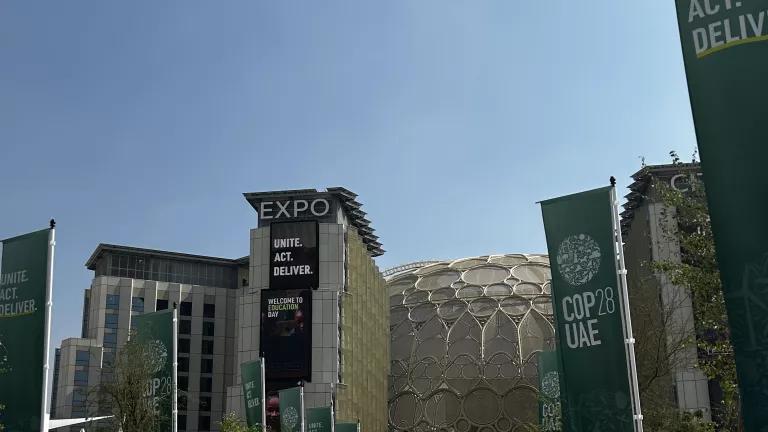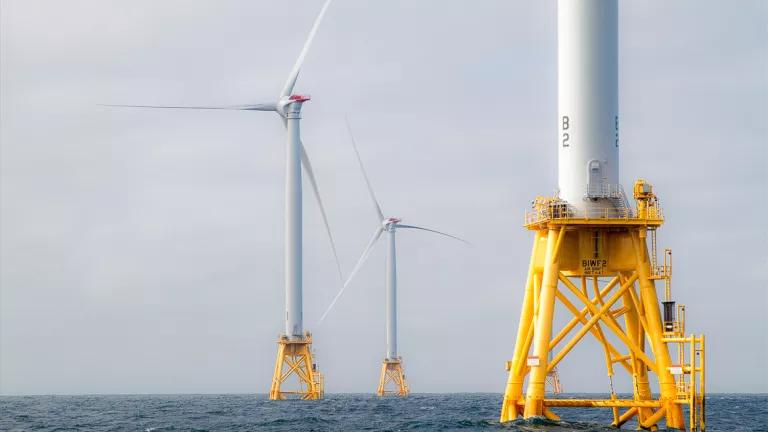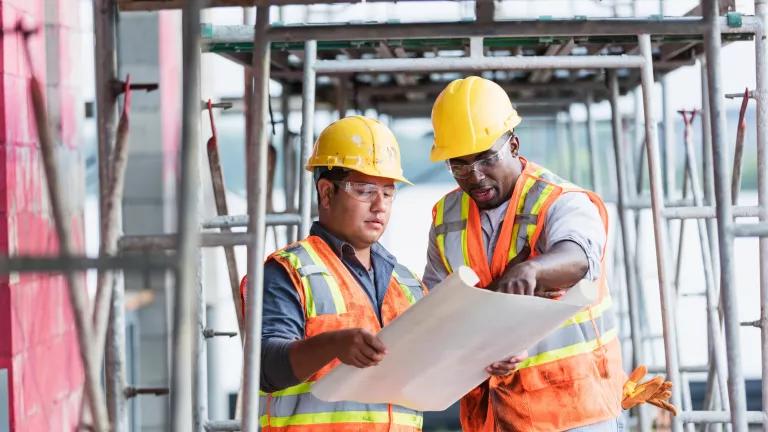At Long Last, a Truly Final 2021 Energy Code
While there will still be significant energy efficiency gains, the most innovative and forward-looking proposals were overturned.

It’s been a long time coming, but we now have a final 2021 International Energy Conservation Code (IECC) for new residential and commercial buildings, following the uncertainty created by appeals that sought to overturn more than 20 of the proposals voted into the code by governmental officials. While there will still be significant energy efficiency gains - including options for constructing zero energy homes and commercial buildings - unfortunately builders and industry groups were successful in getting the most innovative and forward-looking proposals overturned, which means higher consumer costs and carbon emissions.
The appeals process, brought on by those builders and industry groups unhappy with the increased efficiency of the code, has concluded nearly 10 months after voters cast their ballots. Of the 21 proposals that were appealed, 17 will remain in the final code, which will substantially increase the efficiency of new homes built to the 2021 IECC.
However, the International Code Council (ICC) Board of Directors voted to overturn proposals related to residential electrification readiness (i.e., constructing a home so that it is easy to replace gas appliances with efficient and lower-carbon electric options at a future date), electric vehicle readiness for homes and commercial buildings, efficiency requirements for residential water heaters, and a prohibition on continuously burning pilot lights. (My colleague Kim Cheslak at the New Buildings Institute has a more detailed look at the challenged proposals here, and the final appeals outcome here.) Taken together, these energy-saving proposals would have moved the code toward a more climate-friendly future. A better energy code requiring such steps as improved insulation and tighter windows lowers utility costs, reduces power plant pollution and makes homes more comfortable and safer. This is especially important for consumers with limited incomes and higher energy burdens.
Including these proposals in the 2021 energy code should have been a no-brainer–and for thousands of local government officials who voted in favor of them, it was. Preparing buildings for the future that we know is coming–where people drive electric vehicles and electrify their homes to reduce carbon emissions–is just common sense. Investing in future-proofing technologies at the time of construction means avoiding costly and disruptive retrofits at a later date, when the work is orders of magnitude more expensive to complete. It’s a shame that the ICC, which prides itself on helping the building industry stay ahead of trends in technology and policy, took such a narrow view here. Buildings, their occupants, and our world will be worse off because of it.
The Process Broke Down
The International Code Council’s (ICC) process to develop the energy code is wonky–but it’s crucially important to ensuring our new buildings are efficient and help save energy and reduce carbon. New buildings will be around for 50-100 years or more, and it’s cheapest and easiest to build a building right the first time around.
Developing an updated ICC code involves submitting proposed changes, technical committee review and approval, public hearings, a comment process, and voting by members of the International Code Council. Voting members must be employees of state or local governments, as these local governments are ultimately who adopt and use the code. The ICC has an extensive process to validate voters and the voting process. The ICC prides itself on administering a fair and balanced process, leaving the contents of the code ultimately up to the governmental officials who will eventually adopt and use the code in their jurisdictions. That’s how it’s advertised to work, at least. But this appeals process has left governmental voters in the lurch.
The decisions by the ICC Board are troubling for a number of reasons. Each of the ultimately-overturned proposals was overwhelmingly approved by the ICC’s voting membership. Technical decisions of the code are supposed to be left up to the voting membership, while the Board’s role should be limited to reviewing whether the procedures were properly followed. But here the Board overstepped its role, given that there were no irregularities in the way the code development process was conducted.
In fact, the Board’s decisions are in direct opposition to thousands of votes–and the rationale used to justify these decisions is flimsy at best. The Board claimed that proposals related to electrification and electric vehicle readiness were outside the scope and intent of the IECC, but to date has provided absolutely no justification of this decision, either substantively or procedurally. The scope and intent of the code are purposefully broad, and the Board should have deferred to the interpretation of the thousands of voters who felt these proposals belonged in the code–not to the will of builders and their vested financial interests.
For the proposals related to water heating and pilot lights, the Board’s justification to uphold the appeals was that these proposals are “potentially preempted” by federal law, meaning states and localities can’t implement regulations that are stricter than the national-level ones. Preemption is a complex issue that, first of all, is dramatically outside the expertise of the ICC Board of Directors–and should have been left up to the legal experts who work with local governments to adopt the code. Secondly, this decision belies the title of the code, which begins with the word “International.” There is absolutely no pre-emption outside of the United States. The ICC’s own Appeals Board–which first evaluates any appeals filed to the code adoption elements–recommended the appeals be denied, yet the Board of Directors decided to ignore the Appeals Board and grant the appeals.
To close on an uplifting note, this isn’t the end of the road for these worthy proposals that didn’t make it into the 2021 model energy code. Many cities and states have already signaled that they want these policies to be part of their next energy code, regardless of the ICC decision. NRDC is ready to help however we can, to ensure a low-carbon future for all.



